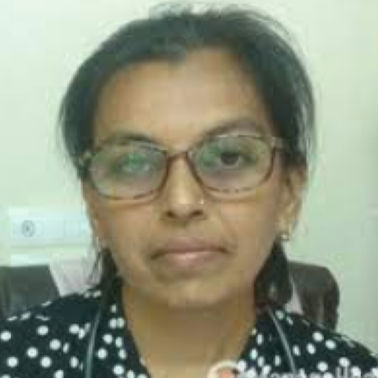Newborn Screening Test Overview and Process
Know what is newborn test, why is it important, what can it screen , how is it done and understanding the results and more.


Welcoming a newborn into the world is a joyous experience, but it also comes with responsibilities—one of which is ensuring your baby’s health right from the start. A Newborn Screening Test (NST) is a simple yet crucial procedure that helps detect rare but serious health conditions in babies early, allowing for timely treatment and better outcomes.
In this article, we’ll walk you through everything you need to know about newborn screening—what it is, why it’s important, how it’s done, and what happens next.
What is a Newborn Screening Test?
A Newborn Screening Test (NST) is a set of tests performed shortly after birth to check for certain genetic, metabolic, hormonal, and functional disorders that may not be visible at birth but can cause serious health problems if left untreated.
Most of these conditions are rare, but early detection can make a huge difference in preventing complications like developmental delays, intellectual disabilities, or even life-threatening conditions.
Consult a Obstetrics doctor for Personalised Advice
Why is Newborn Screening Important?
Some babies are born with hidden health issues that don’t show symptoms right away. Without screening, these conditions may go unnoticed until they cause serious harm. Early detection through newborn screening allows doctors to start treatment immediately, often before symptoms appear, improving the baby’s long-term health and quality of life.
What Conditions Does Newborn Screening Detect?
The exact list of conditions screened may vary by country or hospital, but most newborn screening tests check for:
- Metabolic Disorders – Problems in how the body processes food (e.g., PKU, Galactosemia).
- Endocrine Disorders – Hormone-related issues (e.g., Congenital Hypothyroidism).
- Blood Disorders – Such as Sickle Cell Disease.
- Genetic Disorders – Like Cystic Fibrosis.
- Hearing Loss & Heart Defects – Some screenings include pulse oximetry for heart defects and hearing tests.
Your doctor will inform you about the specific tests performed in your region.
When and How is the Newborn Screening Done?
When is the Test Performed?
- First Test: Usually done 24 to 48 hours after birth, before the baby leaves the hospital.
- Second Test (Follow-up): Some conditions require a repeat test at 1-2 weeks to confirm results.
How is the Test Done?
- The process is quick, safe, and minimally invasive:
1. Heel Prick (Blood Test):
- A nurse or doctor pricks the baby’s heel to collect a few drops of blood on a special filter paper.
- The blood sample is sent to a lab for analysis.
2. Hearing Screening:
- A tiny earphone or microphone is placed in the baby’s ear to check for hearing ability.
3. Pulse Oximetry (for Heart Defects):
- A small sensor is placed on the baby’s hand and foot to measure oxygen levels in the blood.
- Most babies cry briefly during the heel prick, but the discomfort is minimal and temporary.
Understanding the Results
It is classified as:
- Normal Results: If no issues are found, you may not hear back unless a follow-up test is needed.
- Abnormal Results: If a test comes back positive, it doesn’t always mean your baby has the condition—some babies need
further testing to confirm. - Next Steps: If a condition is confirmed, your doctor will guide you on treatment options, which may include dietary
changes, medications, or specialised care.
Note: False positives can happen, so don’t panic if you’re called back for more tests.
What If My Baby Has a Condition?
Early diagnosis means early treatment, which can prevent complications. For example:
- PKU (Phenylketonuria): Managed with a special diet to avoid brain damage.
- Congenital Hypothyroidism: Treated with thyroid hormone supplements for normal growth.
- Sickle Cell Disease: Requires regular medical care to prevent infections.
Your healthcare team will provide a personalised care plan to support your baby’s health.
Is Newborn Screening Mandatory?
In many countries, newborn screening is recommended or required unless parents opt out for personal or religious
reasons. However, skipping screening can risk missing critical health issues, so it’s best to follow medical advice.
How Can Parents Prepare?
It can be done by following ways:
- Ask Questions: Before delivery, discuss newborn screening with your doctor.
- Follow-Up: Ensure the second test is done if recommended.
- Stay Informed: Keep your contact details updated with the hospital so they can reach you if needed.
Final Thoughts
Newborn screening is a simple, painless, and life-saving procedure that gives your baby the best start in life. Most babies pass without any concerns, but for those who need help, early detection can make all the difference.
Consult a Obstetrics doctor for Personalised Advice
Consult a Obstetrics doctor for Personalised Advice

Dr. Sanjan Das
Obstetrician and Gynaecologist
15 Years • MBBS,MS
Bengaluru
Apollo Clinic, Sarjapur Road, Bengaluru

Dr. Rituparna De
Obstetrician and Gynaecologist
6 Years • MBBS, MS (Obstetrics & Gynaecology)
Kolkata
MCR SUPER SPECIALITY POLY CLINIC & PATHOLOGY, Kolkata

Dr. Parul Sharma
Obstetrician and Gynaecologist
8 Years • MBBS, MS (Obstetrics & Gynaecology)
New Delhi
THE DOCTORS NESST, New Delhi
Dr. K Anusha
Obstetrician and Gynaecologist
4 Years • MBBS, DGO
Yemmiganur
SRINIVASAA HOSPITAL, Yemmiganur

Dr. Mona Yadav
Obstetrician and Gynaecologist
19 Years • MBBS, MD (Obstetrics & Gynaecology)
Dombivli
Nulife multispeciality, Dombivli
Consult a Obstetrics doctor for Personalised Advice

Dr. Sanjan Das
Obstetrician and Gynaecologist
15 Years • MBBS,MS
Bengaluru
Apollo Clinic, Sarjapur Road, Bengaluru

Dr. Rituparna De
Obstetrician and Gynaecologist
6 Years • MBBS, MS (Obstetrics & Gynaecology)
Kolkata
MCR SUPER SPECIALITY POLY CLINIC & PATHOLOGY, Kolkata

Dr. Parul Sharma
Obstetrician and Gynaecologist
8 Years • MBBS, MS (Obstetrics & Gynaecology)
New Delhi
THE DOCTORS NESST, New Delhi
Dr. K Anusha
Obstetrician and Gynaecologist
4 Years • MBBS, DGO
Yemmiganur
SRINIVASAA HOSPITAL, Yemmiganur

Dr. Mona Yadav
Obstetrician and Gynaecologist
19 Years • MBBS, MD (Obstetrics & Gynaecology)
Dombivli
Nulife multispeciality, Dombivli




